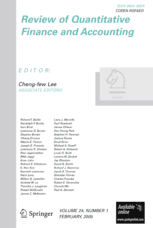
Review of Quantitative Finance and Accounting
Scope & Guideline
Transforming Data into Knowledge in Finance and Accounting
Introduction
Aims and Scopes
- Quantitative Financial Modeling:
The journal emphasizes the development and application of quantitative models in financial contexts, including risk assessment, asset pricing, and volatility forecasting. - Accounting Practices and Innovations:
Research on innovative accounting methodologies and their implications for financial reporting and corporate governance is a core focus, exploring how accounting practices can be enhanced through quantitative approaches. - Corporate Finance and Governance:
The journal covers topics related to corporate finance, including capital structure, dividend policies, and the impact of corporate governance on financial performance. - Market Behavior and Investor Sentiment:
Investigations into market dynamics, investor sentiment, and behavioral finance are central themes, analyzing how psychological factors influence market movements and investment decisions. - Risk Management and Financial Stability:
Studies that explore risk management strategies, particularly in banking and financial institutions, are a significant area of interest, especially in the context of systemic risk and regulatory frameworks. - Emerging Financial Technologies:
The journal also addresses the impact of technological advancements, such as machine learning and blockchain, on finance and accounting, exploring their implications for efficiency and transparency.
Trending and Emerging
- Integration of Machine Learning Techniques:
There is a notable increase in studies employing machine learning and artificial intelligence in financial analysis and accounting practices, indicating a trend towards more data-driven decision-making. - Sustainability and Corporate Social Responsibility (CSR):
Research exploring the intersection of finance, accounting, and sustainability is on the rise, reflecting a growing recognition of the importance of CSR in corporate finance and risk management. - Behavioral Finance Insights:
Emerging themes in behavioral finance, particularly studies examining investor sentiment and decision-making processes, are becoming more prominent, showcasing a trend towards understanding psychological factors in finance. - Impact of Regulatory Changes:
Recent publications are increasingly addressing the implications of regulatory changes on financial practices, highlighting the importance of compliance and governance in contemporary finance. - Financial Market Innovations:
The journal is focusing more on innovations in financial markets, including the effects of cryptocurrencies and fintech on traditional financial practices, which indicates a shift towards exploring new financial instruments and technologies.
Declining or Waning
- Traditional Accounting Methods:
There appears to be a waning interest in traditional accounting methods and practices, as research increasingly emphasizes innovative approaches and the integration of technology in accounting. - Static Risk Assessment Models:
Static models for risk assessment are becoming less prevalent, with a shift towards more dynamic and adaptive models that account for changing market conditions and investor behavior. - General Macroeconomic Studies:
Research focusing broadly on macroeconomic indicators without specific ties to quantitative finance or accounting is declining, as more emphasis is placed on micro-level analyses and firm-specific studies. - Descriptive Financial Reporting:
The focus on purely descriptive financial reporting studies is diminishing, with a growing preference for analyses that incorporate predictive modeling and quantitative techniques.
Similar Journals

Journal of Investment Strategies
Navigating the Complexities of Economic DynamicsThe Journal of Investment Strategies, published by INCISIVE MEDIA, is a distinguished periodical focusing on pivotal issues within the realms of economics, finance, and management. With the ISSN 2047-1238 and E-ISSN 2047-1246, this journal has been making strides since its inception, presenting innovative research from 2018 to 2024. Designated in the Q2 category for both Economics, Econometrics and Finance and Strategy and Management as of 2023, it exemplifies its role as a crucial platform for scholars and practitioners who aim to disseminate knowledge and innovative strategies in investment. Although currently not open access, it provides robust insights into finance advocacy, economic dynamics, and strategic management practices. Researchers, professionals, and students alike can benefit from the journal's high-quality contributions that stimulate discussions and advance the understanding of complex investment landscapes, making it an essential resource in the pursuit of excellence in these competitive fields.
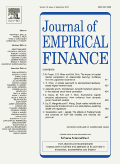
Journal of Empirical Finance
Connecting theory and practice in empirical finance.Journal of Empirical Finance, published by Elsevier, stands as a key resource in the areas of finance and economics, with a definitive focus on empirical studies. As a prominent journal since its inception in 1993, it has made significant strides in contributing to the academic community, evidenced by its soaring categorization in Q1 for Finance and Q2 for Economics and Econometrics as of 2023. With an ISSN of 0927-5398 and an E-ISSN of 1879-1727, the journal emphasizes robust, data-driven analysis to inform both theoretical and practical aspects of financial research. While access options do not include open access, the journal ensures that its content remains accessible to a diverse audience of researchers, professionals, and students. It fosters a platform for innovative research and discourse, significantly impacting the fields of finance, economics, and econometrics. The Scopus rankings further bolster its reputation, placing it in the 61st percentile in both categories, reflecting a commitment to high-quality research output. As the journal continues to evolve, it invites contributions that push the boundaries of empirical finance, enabling a deeper understanding of financial mechanisms that drive global economies.

JOURNAL OF FINANCIAL ECONOMICS
Exploring the intersection of finance, economics, and innovation.Welcome to the JOURNAL OF FINANCIAL ECONOMICS, a premier publication in the realms of finance, economics, and accounting, published by Elsevier Science SA in the Netherlands. With its impactful contributions since 1974, this esteemed journal has earned an impressive impact factor and consistently ranks in the Q1 category across various fields, including Accounting, Economics and Econometrics, Finance, and Strategy and Management. Researchers can access cutting-edge studies that delve into both theoretical frameworks and empirical analyses, crucial for advancing financial literacy and economic policies globally. With remarkable Scopus rankings, notably placing #2 in Accounting and #6 in Finance, the journal serves not only as a reliable resource for academics but also as a vital tool for professionals seeking to stay abreast of the latest financial trends and insights. Engage with the latest research and contribute to the dialogue shaping the future of financial economics!
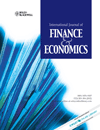
INTERNATIONAL JOURNAL OF FINANCE & ECONOMICS
Fostering Excellence in Financial ScholarshipInternational Journal of Finance & Economics, published by Wiley, is a premier academic journal that serves as a vital resource for researchers and professionals in the fields of finance, accounting, and economics. With an impressive impact factor and a reputation for excellence, the journal is recognized in the 2023 Scopus rankings, placing in the top quartiles across multiple categories, including Q2 in Accounting, Economics, and Finance. The journal has been a significant contributor to academic discourse since its inception in 1996, with its converged years extending to 2024, thereby ensuring the continuous advancement of knowledge in these critical areas. Although it operates under a traditional subscription model, its comprehensive articles provide insightful analyses, empirical research, and theoretical advancements that cater to a diverse audience—from seasoned scholars to emerging students in the field.
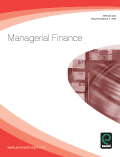
MANAGERIAL FINANCE
Unlocking Strategies for Contemporary Financial Challenges.MANAGERIAL FINANCE is a prestigious academic journal published by Emerald Group Publishing Ltd, focused on the areas of finance, management, and strategy. With an ISSN of 0307-4358 and an E-ISSN of 1758-7743, this journal has carved a niche for itself within the business and financial sectors, achieving a commendable Q2 category ranking across multiple domains, including Business, Management and Accounting, Finance, and Strategy and Management, as of 2023. The journal aims to provide a platform for insightful research and critical analysis while fostering an understanding of contemporary financial practices and theories. With its wide-ranging scope, it serves as a vital resource for researchers, professionals, and students alike, looking to stay abreast of the latest trends and challenges in managerial finance. The editorial board is committed to maintaining academic rigor, ensuring that articles published are of the highest quality and relevance to the field. By bridging the gap between theory and practice, MANAGERIAL FINANCE is an essential reference for anyone involved in financial decision-making and strategic management.
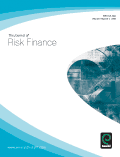
Journal of Risk Finance
Illuminating the landscape of risk management practices.The Journal of Risk Finance, published by Emerald Group Publishing Ltd, is a premier academic journal dedicated to advancing the understanding of risk management and finance practices since its inception in 1999. With a strong foothold within the Q2 rankings in both Accounting and Finance categories, it proudly holds a significant place in the scholarly landscape, ranking #54 out of 317 in the Scopus Economics and Finance category, placing it in the 83rd percentile. The journal aims to facilitate the exchange of innovative research and practical insights, catering to an audience of researchers, professionals, and students eager to explore contemporary issues in risk finance. While not an open access journal, it provides numerous access options, ensuring that essential findings reach a broad readership. Set in the United Kingdom and covering publications up to 2024, the Journal of Risk Finance continues to be an indispensable resource for those committed to this critical field.

Journal of Risk
Advancing Knowledge in Finance and StrategyJournal of Risk, published by INCISIVE MEDIA, serves as an essential platform for scholars and practitioners in the fields of finance and strategic management. With an ISSN of 1465-1211 and an E-ISSN of 1755-2842, this journal explores the multifaceted nature of risk, encompassing theoretical frameworks, empirical investigations, and practical applications. Although currently classified in Q4 for both Finance and Strategy and Management categories as per 2023 standards, it provides a crucial forum for innovative research and thought leadership, addressing the challenges faced in understanding and managing risk in today’s dynamic environment. The journal, based in the United States, is committed to advancing knowledge and offering a platform for debate and dialogue in its convergence years from 2011 to 2024. Researchers, professionals, and students are encouraged to contribute their insights to enhance the academic discourse surrounding risk management.

International Review of Finance
Elevating financial scholarship to new heights.International Review of Finance is a prestigious academic journal published by Wiley, located in the United Kingdom. With its ISSN 1369-412X and E-ISSN 1468-2443, this journal serves as an essential platform for researchers and practitioners in the fields of Economics and Finance. Ranked in the Q2 quartile for both Economics and Econometrics and Finance as of 2023, it showcases high-quality research that contributes significantly to theoretical and practical advancements. Reflecting its standing, the journal is positioned in the 61st percentile in Economics and Econometrics and the 60th percentile in Finance according to Scopus rankings. The scope of the journal includes a diverse range of topics, encouraging innovative discourse across various financial disciplines. Although it does not offer open access, the International Review of Finance continues to be an important resource for academics, professionals, and students seeking to deepen their understanding of evolving financial theories and practices.
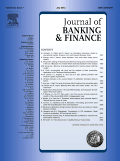
JOURNAL OF BANKING & FINANCE
Your Gateway to Cutting-Edge Financial ResearchWelcome to the Journal of Banking & Finance, a premier publication in the fields of finance and economics, expertly published by Elsevier. With its esteemed Q1 ranking in both the Economics and Econometrics and Finance categories for 2023, this journal frequently garners significant attention from researchers, professionals, and academics alike. Established in 1977, it has become a crucial resource for the latest research and advancements in banking and financial services, influencing policies and practices on a global scale. The journal's commitment to high-quality, peer-reviewed content ensures that it not only contributes to academic discourse but also drives real-world financial innovation. As part of the respected Elsevier publishing collection, the journal's rigorous standards and comprehensive analysis serve as indispensable tools for those seeking to understand and navigate the complexities of the financial landscape. Located in the Netherlands, the Journal of Banking & Finance continues to play a vital role in shaping the future of financial research through its impactful insights and research contributions.

International Journal of Financial Studies
Championing accessible research in the world of finance.The International Journal of Financial Studies is a premier publication dedicated to advancing the field of finance through open-access research. Published by MDPI based in Switzerland, this journal offers researchers, professionals, and students a platform to disseminate their findings in an accessible format since its establishment in 2013. With its ISSN of 2227-7072 and a commendable impact reflected in its Q2 ranking in finance, it occupies an influential position among finance-related journals, as evidenced by its 65th percentile rank in Scopus. The journal encompasses a wide array of topics in finance, making it essential reading for those seeking to stay abreast of current research trends and methodologies. As an open-access journal, all articles are freely available, significantly enhancing the visibility and reach of published studies, which is crucial for fostering collaboration and innovation within the global financial community. Published continuously until 2024, the International Journal of Financial Studies is not just a source of knowledge; it is a critical contributor to the progression of financial scholarship.